What is the Mediterranean Diet?
All things in moderation…this balanced attitude toward food is why the diet of the sun-kissed Mediterranean is one of the world’s most healthful. Let this simple plan be your guide to modifying the region’s favorites into Americanized, good-for-you dinners you can savor with family and friends.
by Pamela Killeen
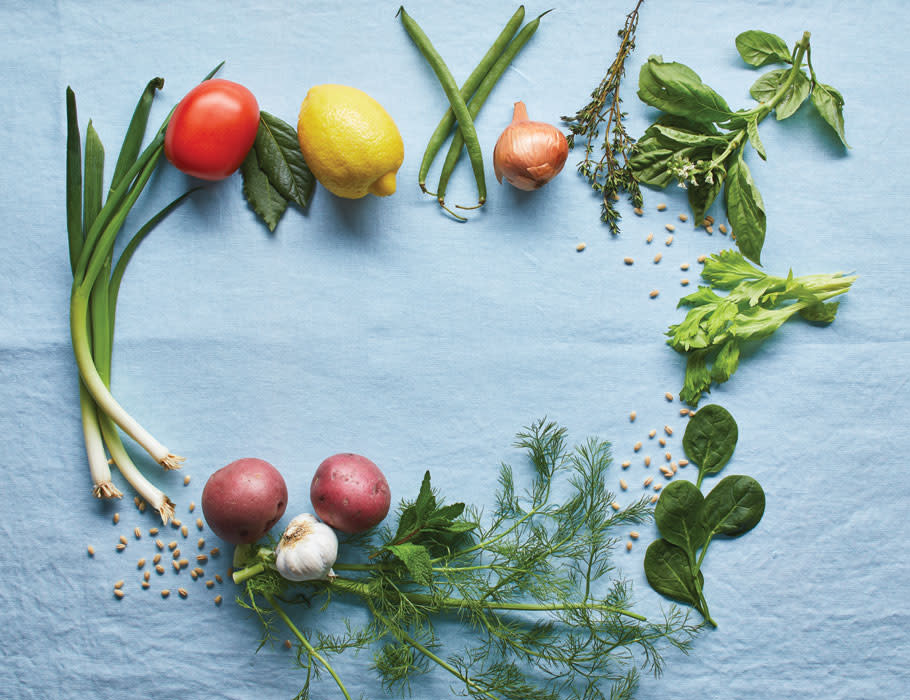
The Mediterranean diet continues to top US News and World Report’s 2021 ranking of best diets. Year after year this balanced approach to eating has proven that it’s no fad.
This ranking isn’t surprising to many, as the diet, which primarily emphasizes a plant-based approach to eating, has been shown to foster good health. Plus, it’s both simple and easy-to-follow, which means people are more inclined to stick with the “program.”
But what exactly is the Mediterranean diet? It’s not really a diet per se, but more of a lifestyle approach to healthy eating. The name is kind of a generic term used in association with the eating habits of those countries that border the Mediterranean Sea. But since there are at least 16 countries bordering the sea, there is a great deal of variety in eating styles.
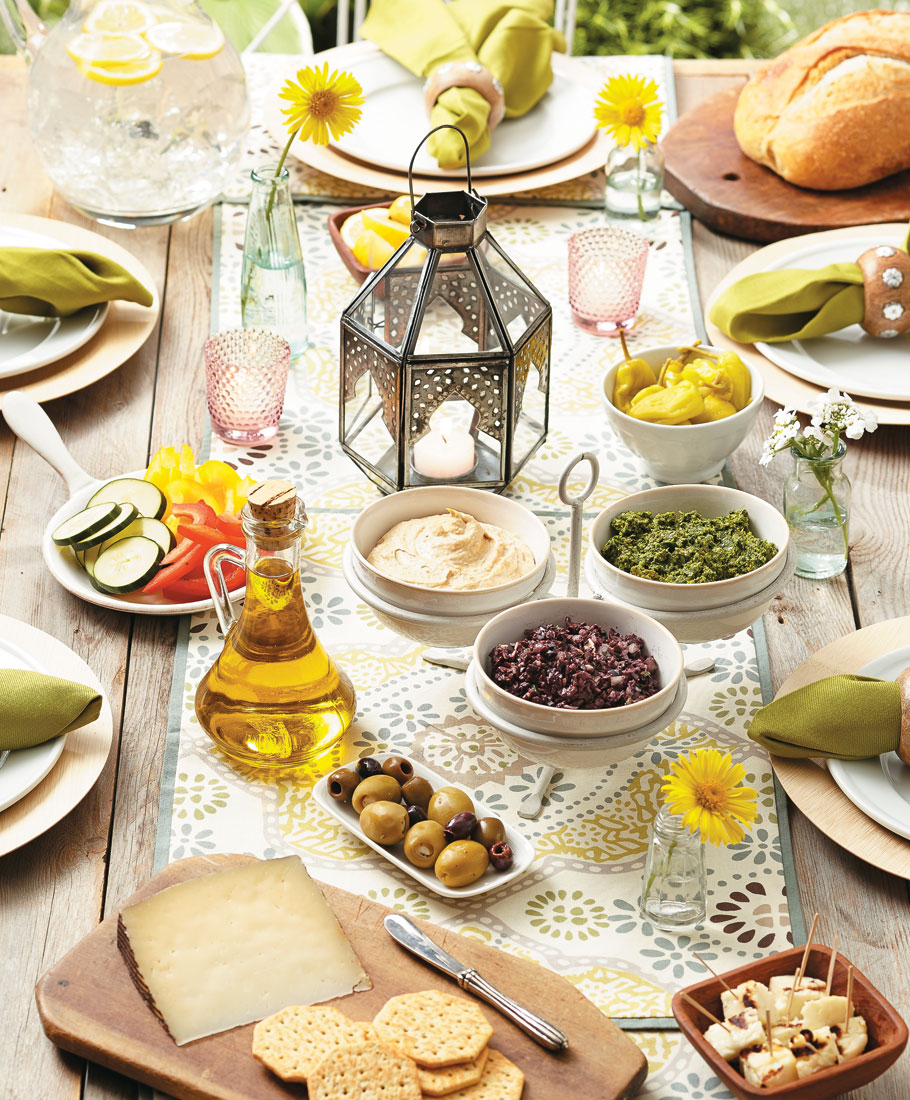
Go With Grains
Ancient grains like farro and bulgur are native to the Mediterranean. You’ll likely come across several other whole grains in your travels, such as couscous, a favorite of North African cuisine; Italian pastas; and quinoa, a South American grain that’s becoming commonplace on dinner tables the world over. All serve as fiber- (and sometimes protein-) filled recipe bases to keep you fuller longer.
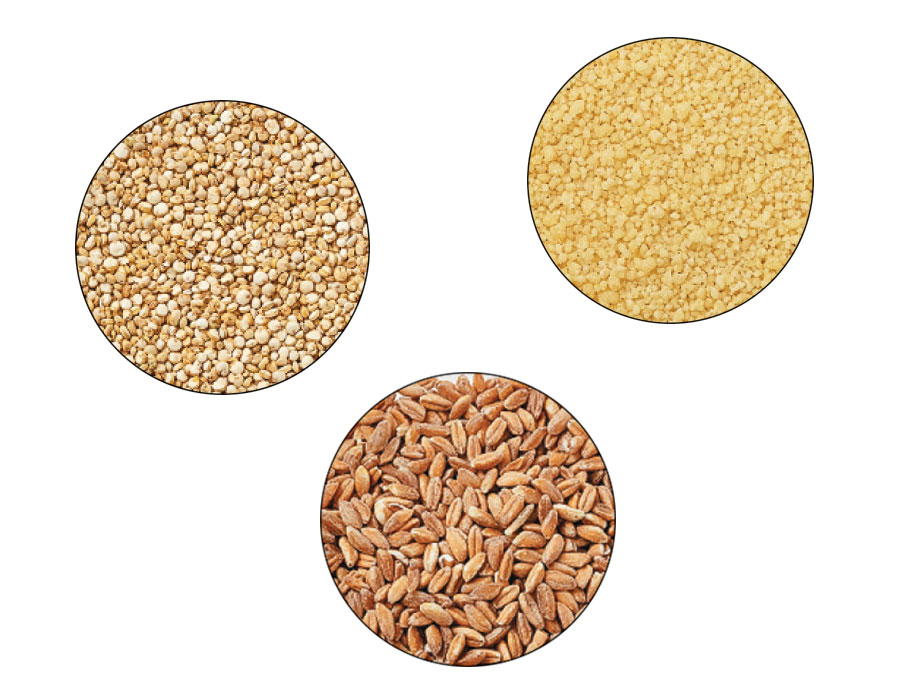
Eat Your Veggies
…is a suggestion Mom would approve of (whether she’s from the region or not). We know vegetables are good for us, but most of us could still add more of them to our diet. Because they are so plentiful in the temperate climate of the Mediterranean, they (along with the grains and pastas) are the core of the region’s food “pyramid.” Eating larger portions of high-fiber vegetables, fruits, and legumes — rather than red meats — can promote good health and weight control.
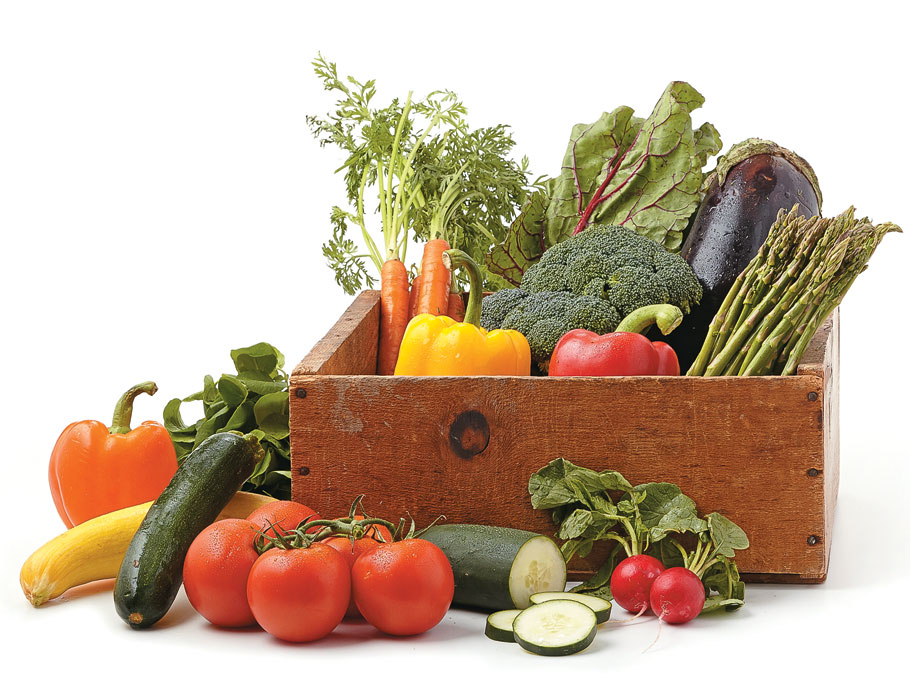
Flavor It Up
Fresh herbs are a workhorse of the Mediterranean kitchen. Favorites like rosemary, mint, parsley, and oregano add huge hits of distinct flavor and antioxidants, too.
Garlic and onions give a flavor base as well as numerous health benefits.
Briny ingredients such as capers and olives may be small but their flavor is mighty. They contribute salty taste that goes a long way toward adding flavor without lots of sodium.
Lemons are abundant in the countries of the Mediterranean, both in the garden and on the table. Their tart taste means you can reduce fats without reducing flavor.
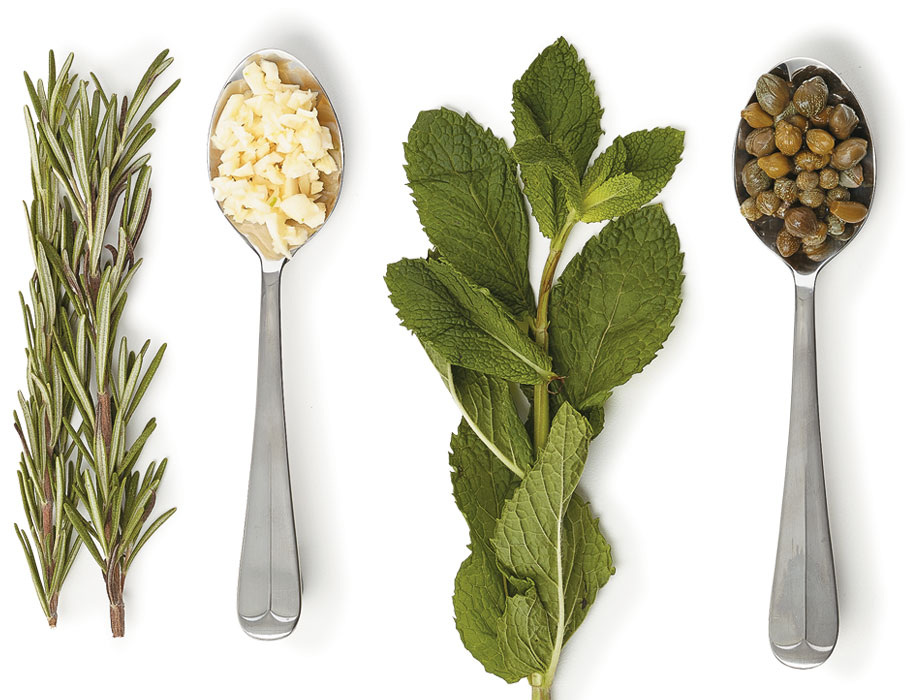
Go-To Fats
The Mediterranean “diet” has definitely been deemed healthful, but don’t let that mislead you into thinking it’s low-fat. It’s low in saturated fats due to minimal use of animal fats like butter and red meat but has a surplus of “good” fats like those found in olive oil, nuts, and some fish.
Olive oil is the go-to fat for cooking, making vinaigrettes, and drizzling over fresh or cooked vegetables because a variety of olives are native to the Mediterranean region.
Nuts such as almonds, pistachios, and pine nuts are a good source of monounsaturated fats and a quick, easy way to add flavor and texture to recipes.
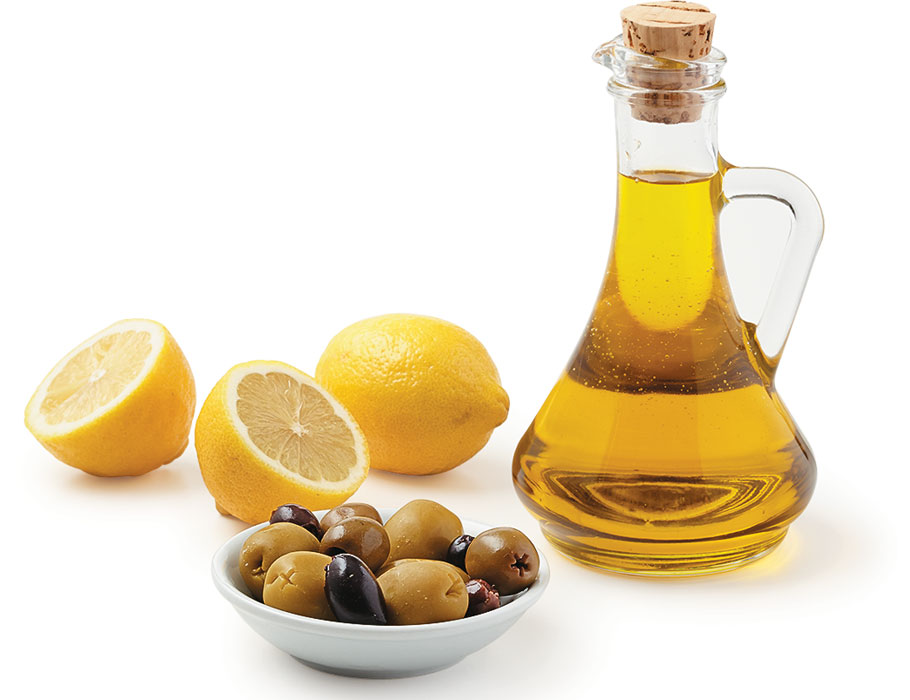
A Few Last Guidelines
Eat minimal portions of red meats and sweets.
Drink plenty of water.
Enjoy wine in moderation.
That sums it up! Ready to dip your toe into the Mediterranean Diet? Check out our collection of Mediterranean dishes to get inspired.
Product Recommendations
Interested in cooking? Need some supplies?
Check out some of the tools we like. All products featured on Cuisine at Home are independently selected by our editors; we may earn an affiliate commission from qualifying purchases through our links.